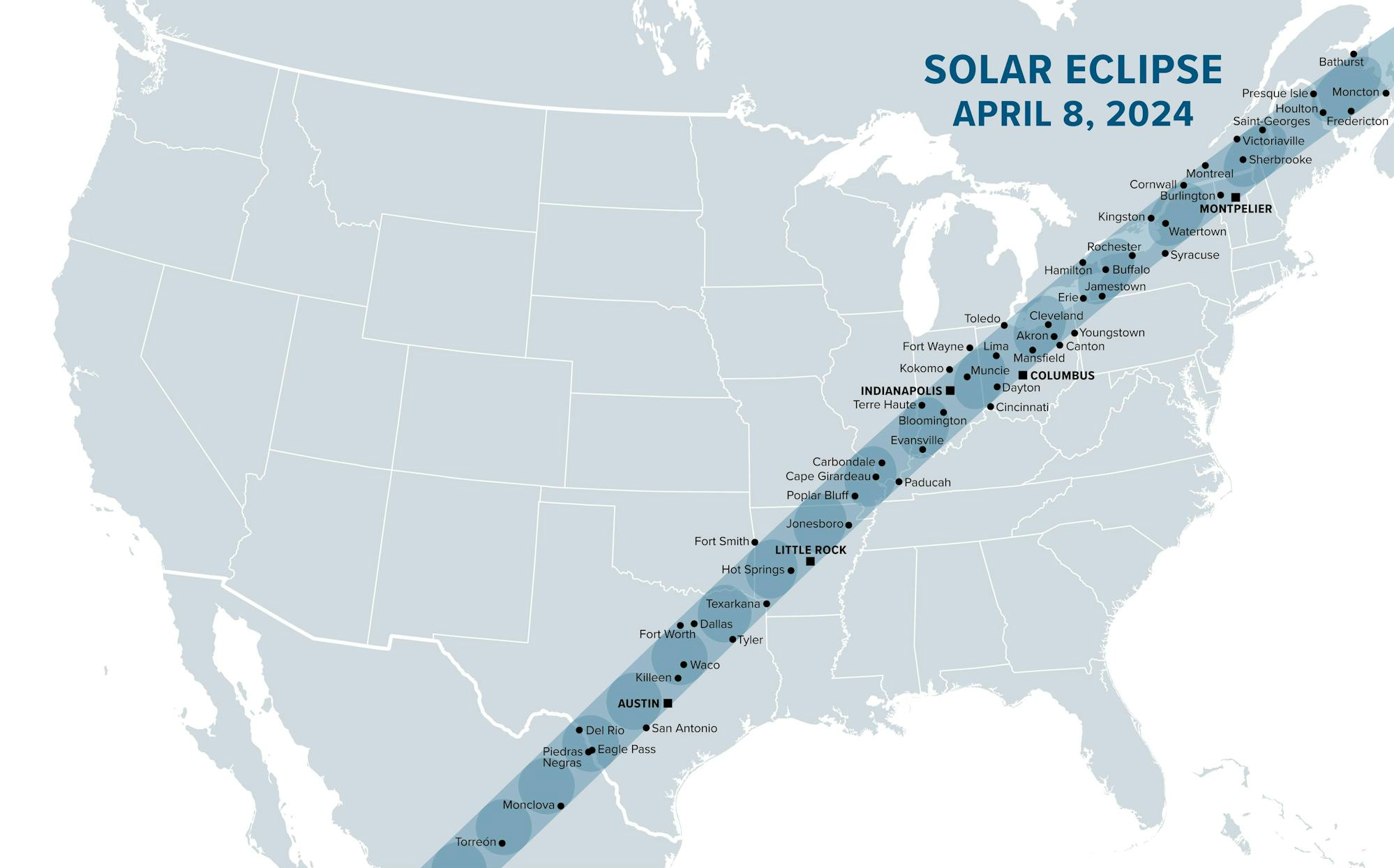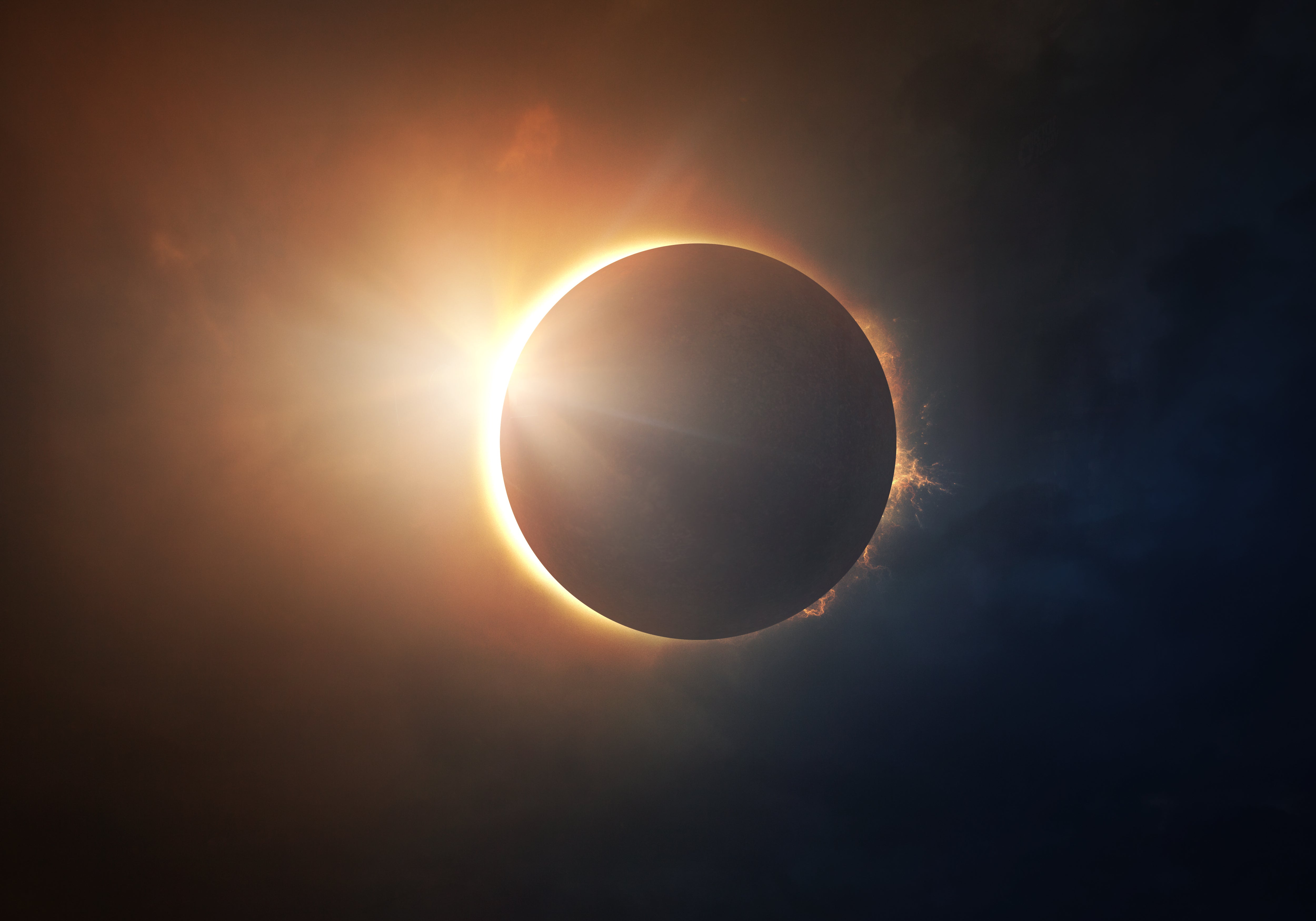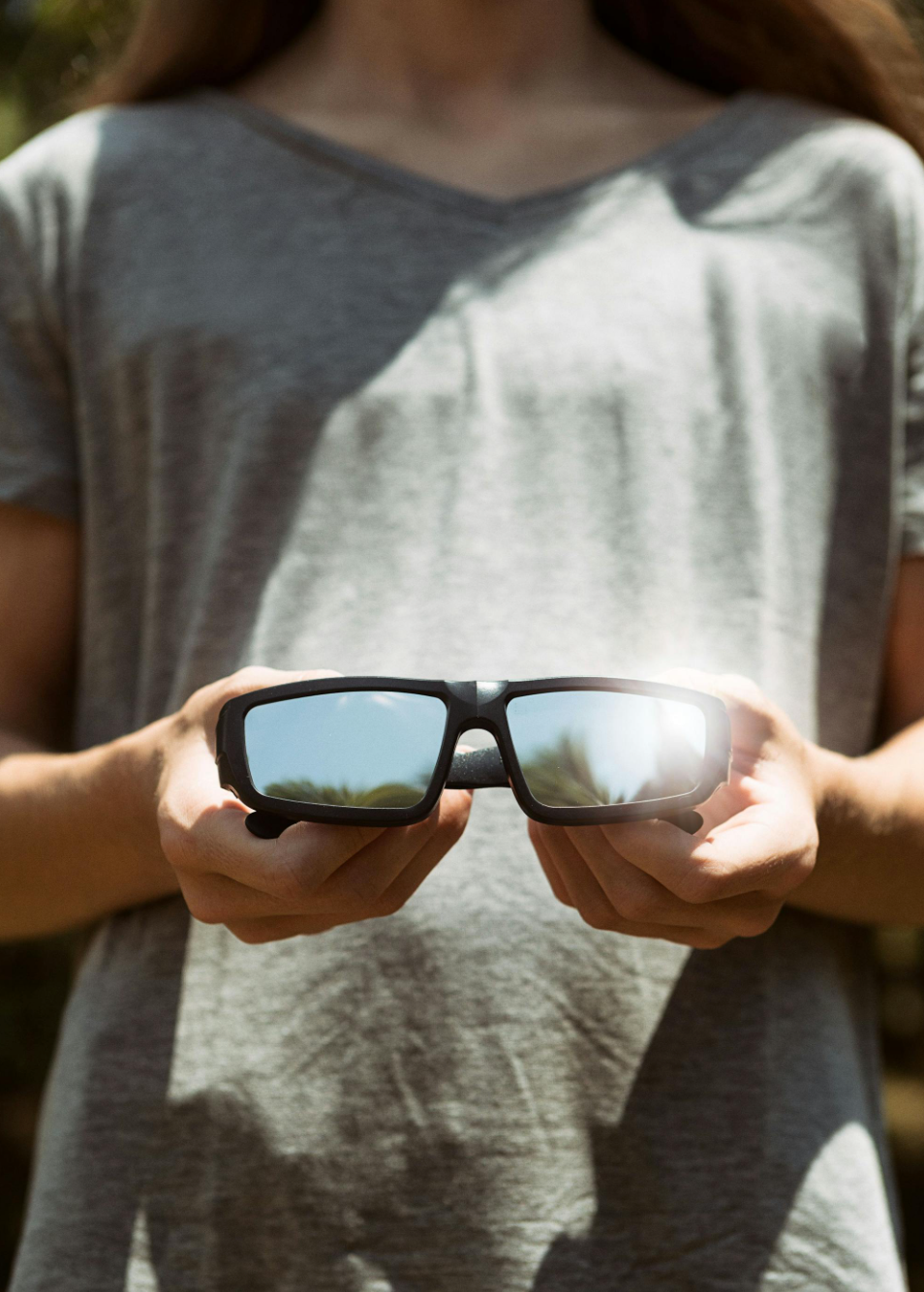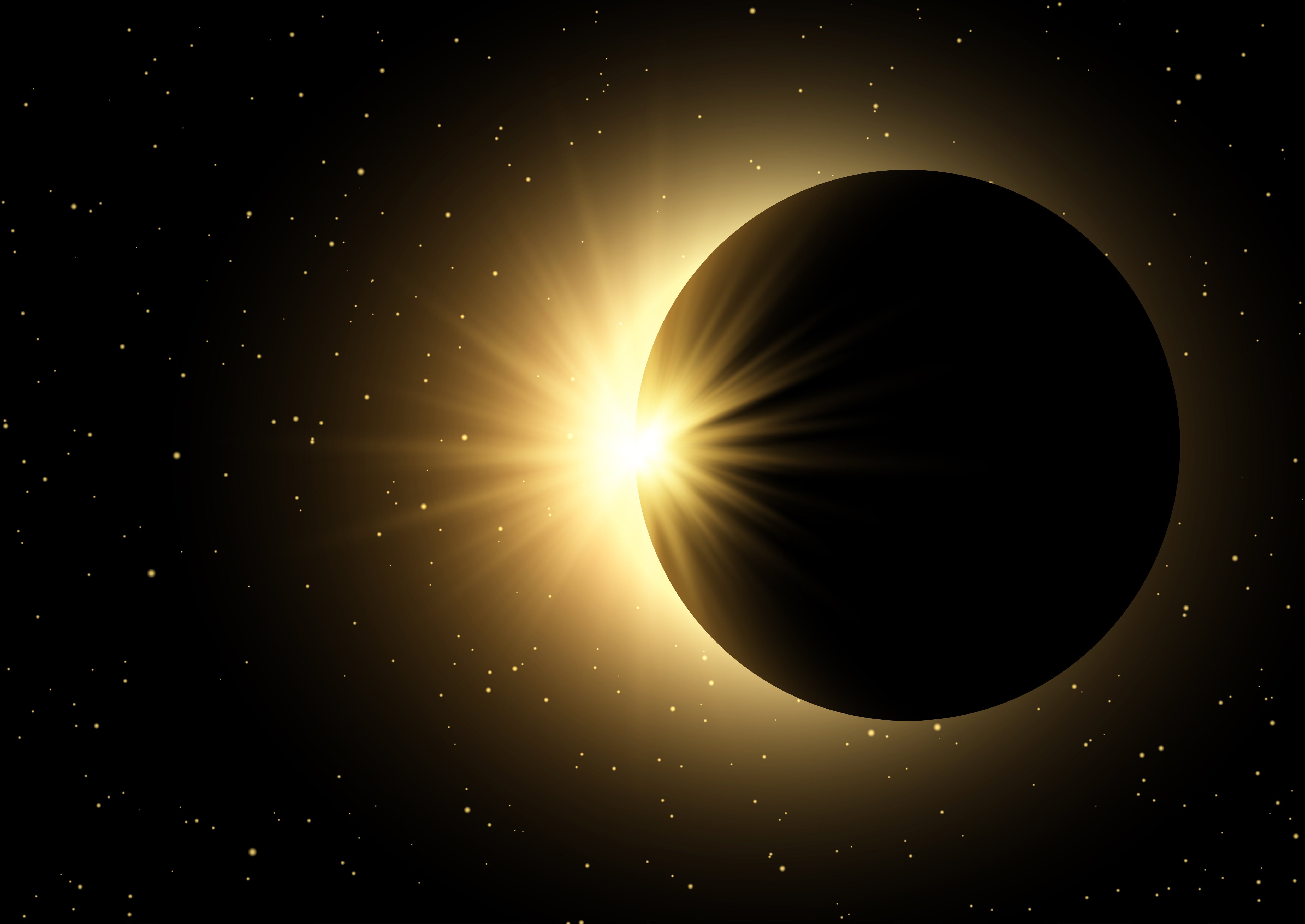5 MIN READ
4-08-2024
Everything You Need
to Know About The
2024 Solar Eclipse.
Henry Bliss, 4ocean Story Producer
On April 8th, a total solar eclipse will sweep over the United States, with an expected 34 million people watching.
As the celestial choreography unfolds, the moon will glide gracefully between Earth and the sun, casting its shadow upon the landscape below. Across cities and countryside, anticipation will mount as daylight yields to an eerie twilight, and the world holds its breath in anticipation of the awe-inspiring moment when the sun is entirely blocked. According to NASA, this year's solar eclipse will last longer than the previous eclipse, which was last viewed in August 2017. With only fifteen total solar eclipses in the past 150 years, NASA predicts that the next total solar eclipse will appear in 2044.

The solar eclipse will trace a path of totality across North America, spanning from the western coast of Mexico, crossing through the United States, and ending in eastern Canada. Major cities such as Dallas, Indianapolis, Cleveland, and Buffalo will experience totality.
When can I see the Solar Eclipse?
The timing of the solar eclipse varies depending on your specific location within the United States. Here are some approximate times for the start and peak of the solar eclipse in different regions of the country:
Eastern Time Zone:
- Start of partial eclipse: Late morning to early afternoon
- Peak of partial eclipse: Early to mid-afternoon
- Totality (if within the path): Mid-afternoon
Central Time Zone:
- Start of partial eclipse: Mid-morning
- Peak of partial eclipse: Late morning to early afternoon
- Totality (if within the path): Early to mid-afternoon
Mountain Time Zone:
- Start of partial eclipse: Mid-morning
- Peak of partial eclipse: Late morning
- Totality (if within the path): Late morning to early afternoon
Pacific Time Zone:
- Start of partial eclipse: Late morning
- Totality (if within the path): Early to mid-afternoon
- Totality (if within the path): Late morning to early afternoon
It's important to note that these times are approximate and may vary slightly depending on your exact location within each time zone. Additionally, if you're not within the path of totality, you'll experience a partial eclipse rather than a total eclipse. Be sure to check local sources or use online tools to find the precise times for your location.

Does the ocean’s tide alter during a Solar Eclipse?
Solar eclipses occur during a new moon when the sun and moon are aligned, which means that their gravitational forces on Earth are combined. This alignment can enhance the gravitational pull on the Earth's oceans, leading to slightly higher high tides and slightly lower low tides around the eclipse. However, the effect is generally subtle and may not be noticeable in many locations, mainly if the eclipse is not occurring simultaneously with the highest or lowest tides of the month.It's worth noting that other factors, such as the geography of the coastline and local weather conditions, can have a more significant impact on tides than the gravitational effects of a solar eclipse.

How does the solar eclipse affect animals?
Some animals may exhibit changes in behavior or activity patterns, while others may not show any noticeable response. The extent of animal reactions can vary depending on the species, their sensitivity to light and environmental cues, and their natural behaviors.
Nocturnal Animals:
Nocturnal animals, such as bats and owls, may become more active during a solar eclipse, mistaking the temporary darkness for nighttime.
Diurnal Animals:
Diurnal animals, like birds and squirrels, may exhibit behaviors associated with the approach of evening, such as roosting or returning to their nests. Some birds may stop singing temporarily.
Insects:
Some insects, particularly those active during the day, may exhibit changes in behavior during a solar eclipse. For example, bees might return to their hives, and mosquitoes may become less active.
Aquatic Life:
Aquatic animals, such as fish and marine mammals, might not be noticeably affected by the eclipse, especially if they are at depths where the change in light is minimal.
Domestic Animals:
Pets and domesticated animals may not react significantly to a solar eclipse, although some individuals might become confused or anxious by the sudden change in light.

Limited Edition
Earth Day 2024 Bracelet
Shop now + Clean the OceanEclipse Safety
During the solar eclipse, it is crucial to prioritize eye safety to prevent potential damage to your vision.
Staring directly at the sun during an eclipse, even for a brief moment, can cause severe and permanent eye damage. The harmful ultraviolet and infrared rays emitted by the sun can lead to solar retinopathy, a condition where the retina is damaged by solar radiation.
To safeguard your eyes, it's essential to use proper solar viewing glasses or eclipse glasses certified to meet international safety standards. These glasses have specialized solar filters that block out harmful rays, allowing safe observation of the eclipse.
Alternative methods such as pinhole projectors or indirect viewing through a telescope with a solar filter can provide a safe way to experience the eclipse without risking eye injury.
Always exercise caution and prioritize eye safety to enjoy the wonder of a solar eclipse without compromising your vision.
Reducing your plastic footprint
Reducing your plastic footprint with solar eyewear involves making conscious choices to minimize the use of disposable plastic items associated with viewing solar events.
Choose Reusable Solar Eyewear:
Invest in high-quality solar viewing glasses designed for multiple uses. Look for glasses made from durable materials like cardboard or recycled plastics that can be used for several solar events, reducing the need for single-use plastic eyewear. When viewing with others, share a pair of glasses instead of having each person in your group buy a pair.
Avoid Single-Use Plastic Packaging:
When purchasing solar eyewear, opt for products that come with minimal or no plastic packaging. Choose brands that use eco-friendly packaging materials or packaging that can be recycled or composted.
Reuse or Recycle Old Solar Eyewear:
If you already have solar eyewear from previous events, consider reusing them for future eclipses or donating them to others. If the glasses are no longer usable, check if they can be recycled according to local recycling guidelines.
Educate Others:
Spread awareness about the importance of reducing plastic waste associated with solar events like eclipses. Encourage friends, family, and community members to choose reusable solar eyewear and adopt eco-friendly habits.
Dispose of Waste Properly:
After the solar event, ensure that any waste generated, such as packaging or old eyewear, is disposed of properly. Recycle materials wherever possible and dispose of non-recyclable items responsibly to reduce environmental impact.
By implementing these strategies, you can reduce your plastic footprint associated with solar eyewear and contribute to a more sustainable approach to enjoying this year's solar eclipse!


Limited Edition
Earth Day 2024 Bracelet
Shop now + Clean the Ocean
We’re always on the lookout for incredible stories from our community! Pitch yours to our team at stories@4ocean.com
You May Also Like



